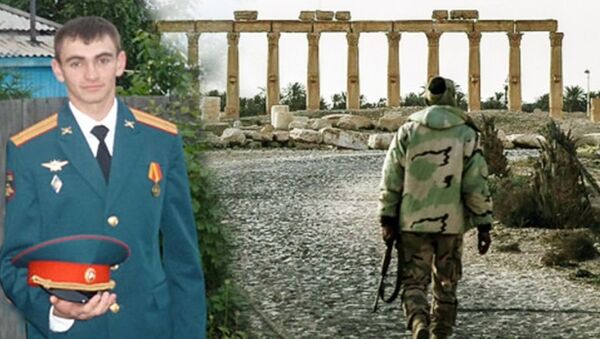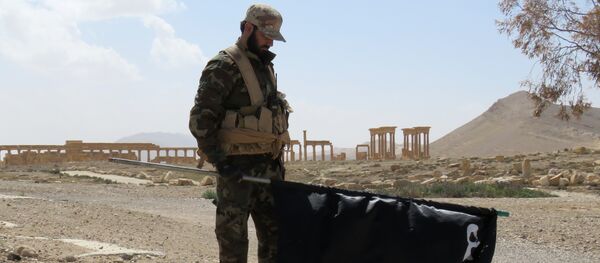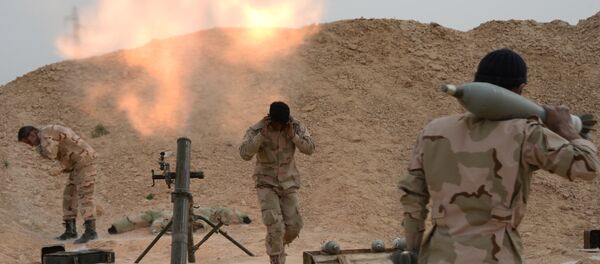On March 24 a spokesman for the Russian military at the Hmeimim air base in Syria announced that a Russian officer had been killed by an airstrike after providing intelligence and coordinates for the Russian Air Force to attack Daesh targets in the region of Palmyra, in the Homs province of Syria.
He ordered his comrades to carry out an air strike on his position after he was discovered and surrounded by Daesh terrorists while on an intelligence mission.
Alexander Prokhorenko was from the village of Gorodki in the Orenburg region of Russia. He began training at the Army Air Defense Corps Military Academy straight after leaving school, and graduated the academy with honors.
"There are a lot of soldiers in his family, and he always dreamed of serving in the armed forces," a friend of Alexander told the Komsomolskaya Pravda newspaper.
Alexander's immediate family and wife Katya, who is expecting their first child, were informed about his death on March 19 by officials from the Ministry of Defense.
They visited Gorodki and thanked Alexander's family for raising such a son.
У вызвавшего под Пальмирой огонь на себя Александра Прохоренко дома осталась беременная женаhttps://t.co/vBlfP1vN9U pic.twitter.com/tvuM6Qsnfs
— Дмитрий Смирнов (@dimsmirnov175) 29 марта 2016 г.
'Alexander Prokorenko, who called an airstrike on himself at Palmyra, has pregnant wife at home,' Komsomolskaya Pravda reported.
"Nobody knew exactly where Sasha (Alexander) was serving, they said it was somewhere in the special forces," said Natalya Meshkova, headteacher of Gorodetskoy Middle School, which Alexander attended.
"He graduated our school with a silver medal, he was first in all competitions and the school won them thanks to him. He was one of those people who was never afraid, regardless of the situation. For everybody, he is a hero."
"We would like to name our school after him," said Nadezhda Rusinova, a teacher at the school.
"It is a real act of bravery that we will tell our pupils about. After all, ordering an airstrike on yourself is something that not everybody would be able to do."
"In order to prevent airstrikes on Palmyra's historical monuments and civilian areas, air strikes were conducted according to the orders of Special Forces," explained Lieutenant General Sergey Kuralenko, head of the Russian Center for Syrian Reconciliation on Monday.




